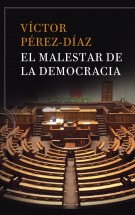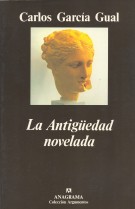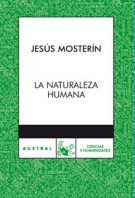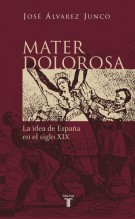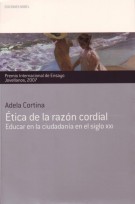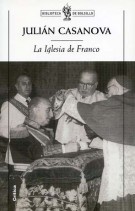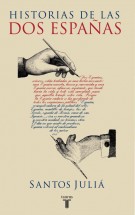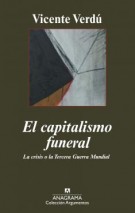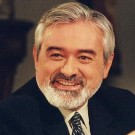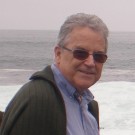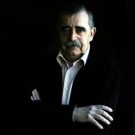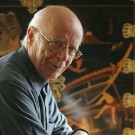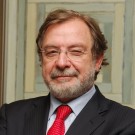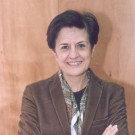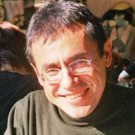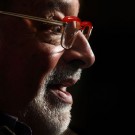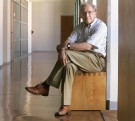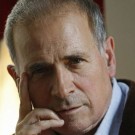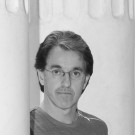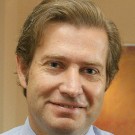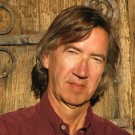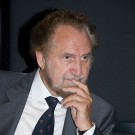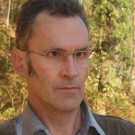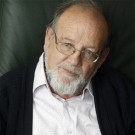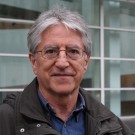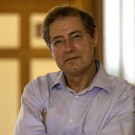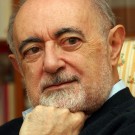Essay and Science
The Santillana Foundation and the Miguel de Cervantes Virtual Library Foundation are proud to present the most ambitious and efficient spreading tool ever seen by Spanish-language essay.
Essay and Science offers the easiest and most direct access to work by our thinkers and essayists, in English to the international community.
Books
The Open Vision: From the Grail Legend to Surrealism
The Rule of the Game. On the Difficulty of Learning Philosophy
Images of the City. Poetry and Film, from Whitman to Lorca
Sacrifice and Creation in the Paintings of Rothko
Mater Dolorosa. The Concept of Spain in the 19th century
Ethics of Cordial Reason. Educating in Civic Values in the 21st Century
Philosophy: Questions that Concern us All
Midnight in History. Comentary on Walter Benjamin's Theses: "On the Concept of History".
Even by a Nation of Devils: Democracy, Liberalism and Republicanism
Authors
(Vilalba, Spain, 1950). He obtained his Ph.D. in Hispanic Philology from the Autonomous University of Madrid. He is professor at the University of Santiago de Compostela, a university from which he received a degree in Humanities in 1972 and of which he...
(Ferrol, Spain, 1940). He studied in Seville, at the San Isidoro Institute. He holds a Ph.D. in Sociology from the Complutense University of Madrid and has held research grants at Stanford and Oxford. He joined the Spanish National University for Distance Learning...
(Barcelona, Spain, 1942). In 1960 he began his degree in philosophy at the University of Barcelona, continuing his further studies at the universities of Navarra (Pamplona), Madrid, Bonn and Cologne. In 1964, he presented his undergraduate thesis Alma y Bien...
(Barcelona, Spain, 1955). She is currently a professor of Romance Philology in the Humanities Department at Barcelona's Pompeu Fabra University and head of the same university's Ph.D. program. She has devoted her study to the Middle Ages: the culture of chivalry and...
(Seville, Spain, 1927). He studied philosophy and classics at the University of Madrid, where he graduated top of his class in 1952. The following year, he won a scholarship to the University of Heidelberg in Germany at the proposal of Hans Georg Gadamer and Karl...
(Bilbao 1959) is a professor of political and social philosophy and Ikerbasque researcher at the University of the Basque Country/Euskal Herriko Unibertsitatea. A former fellow of the Alexander von Humboldt Foundation at the University of Munich and visiting professor...
He studied Philosophy at the Complutense University of Madrid and graduated from the Official School of Journalism of Madrid in 1963. He was a founding member of the magazine Cuadernos para el diálogo (1963) and from 1963 to 1975 he worked as the chief...
Born in Valencia, she is professor of Ethics and Political Philosophy at the University of Valencia, where she did her undergraduate and doctoral degrees in Philosophy. She further pursued her research at the Universities of Munich and Frankfurt as fellow of the...
Writer and professor of Economics, Ethics and Social Sciences at the University of Barcelona, where he was awarded his Ph.D. in Economics. He completed long-term stays as Visiting Professor at the Universities of Chicago and the University of Wisconsin-Madison and has...
(San Sebastián, Spain, 1947). His first studies were at the Marianist school at the Cuesta de Aldapeta. When he was thirteen years old, his family moved to Madrid, where he finished high school at the school of El Pilar. He pursued a degree in Humanities,...
(Viella, Lérida, Spain, November 8, 1942). He holds a degree in Law (1964) and Political Science (1965) from the University of Madrid and a Ph.D. in Political Science from the same university (1974), which by then was known as the Complutense. He studied English...
Santander, 1966. Doctor of Law and Professor of Philosophy of Law at the King Juan Carlos University of Madrid. He was a professor at the University of Cantabria and at the Carlos III University in Madrid and he is a contributor to the Revista de...
Born in Barcelona and moved to Paris at an early age, where he studied Philosophy. He obtained the degree of Docteur d'état from the Sorbonne with a thesis about the Aristotelian order. After years of teaching in Dijon and Paris, he obtained professorship...
(Elche, Spain, 1942). A writer and journalist, a large part of his professional career has been linked to El País, one of Spain 's leading newspapers, where he has been Editor of the opinion and cultural sections. He is also a regular collaborator of the journal...
Professor of Contemporary History at the University of Zaragoza. His publications include La historia social y los historiadores (Crítica, Barcelona, 1991); De la calle al frente. El anarcosindicalismo en España, 1931-1939 ...
(Barcelona, Spain, 1947). She holds degree in Philosophy from the University of Barcelona (1965), and a Ph.D. in Philosophy from the Autonomous University of Barcelona (1975). She has worked as professor of Philosophy at the Autonomous University of...
(Bilbao, Spain, 1965). He holds degrees in Classical Philology and Law, as well as a Ph.D. in Philosophy and is a member of the Council of State (he was first of his year). He has been the director of the Juan March Foundation since 2003. He received the prize...
(Barcelona, Spain, 1949). He studied Philosophy, Medicine, Economics and Media Studies at the University of Barcelona and also took courses at the University of Rome, the Warburg Institute of London and the Free University of Berlin; and obtained his Ph.D. in...
(Barcelona) is a professor of Contemporary Philosophy at the University of Barcelona. He has been a visiting professor at various European and American universities, as well as a research fellow at the CSIC Institute of Philosophy (Madrid). He has written more than...
(Barcelona, 1958) holds a Ph.D. in Philosophy from the Albert-Ludwigs University of Freiburg in Breisgau (Germany) and the Aesthetics Chair in the Humanities Department of Pompeu Fabra University. He was "Joan Coromines Visiting Professor" at the University of...
(Madrid, Spain, 1938). He holds a Ph.D. in Sociology from Harvard University and has taught Political Science at Harvard, the Massachusetts Institute of Technology (MIT), University of California, San Diego, and the Institut d'Études Politiques in Paris....
(Tudela, Spain ,1957). He is an essayist, translator, poet and novelist. He has translated Montaigne, Rilke, Joseph Roth, Sloterdjik, Morgenstern, Hölderlin, Ungaretti, Seneca, Marcus Aurelius, Epictetus and Stuart Mill among others. He has published the essay...
This philosopher holds a Ph.D. from the University of Münster (1972), Germany, and the Autonomous University of Madrid (1980), Spain. In 1990 he co-founded the Institute of Philosophy in Madrid, of which he was principal until 1998. Today, he heads...
(Bilbao, Spain, 1941). He graduated from the Faculty of Philosophy at the Complutense University of Madrid, after which he studied under Hans Hermes at the Institut für mathematische Logik und Grundlagenforschung at the University of Münster. He...
(Barcelona, Spain, 1944). He holds a Doctorate in Philosophy, is professor of Aesthetics and he is a regular collaborator of the newspaper El País . He has published books of poetry including Cepo para nutria, El velo en el rostro de Agamenón , Edgar en...
(Palma de Mallorca, Spain, 1943). He is a professor of Greek Philology at the Complutense University of Madrid, and one of the most representative figures of the Spanish cultural life. Among his numerous books of literary and mythological studies,...
(Madrid, Spain, 1954). He is professor of Philosophy at the Complutense University of Madrid. He regularly writes for periodicals such as El Viejo Topo, Los Cuadernos del Norte, Revista de Occidente, Archipiélago o Claves de razón práctica ,...
Articles
From the ‘300’ to Aeschylus.
Depictions of the barbaric Persians and the athletic Spartans
Excellence in Healthcare Professions
Contact:
Fundación Santillana 2011 © Gran Vía, 32 - 28013 Madrid | | Legal advice | Sitemap
Fundación Biblioteca Virtual Miguel de Cervantes © Plaza de Manuel Gómez Moreno 2, Edificio Mahou Anexo. 3ª planta - 28020 Madrid |







